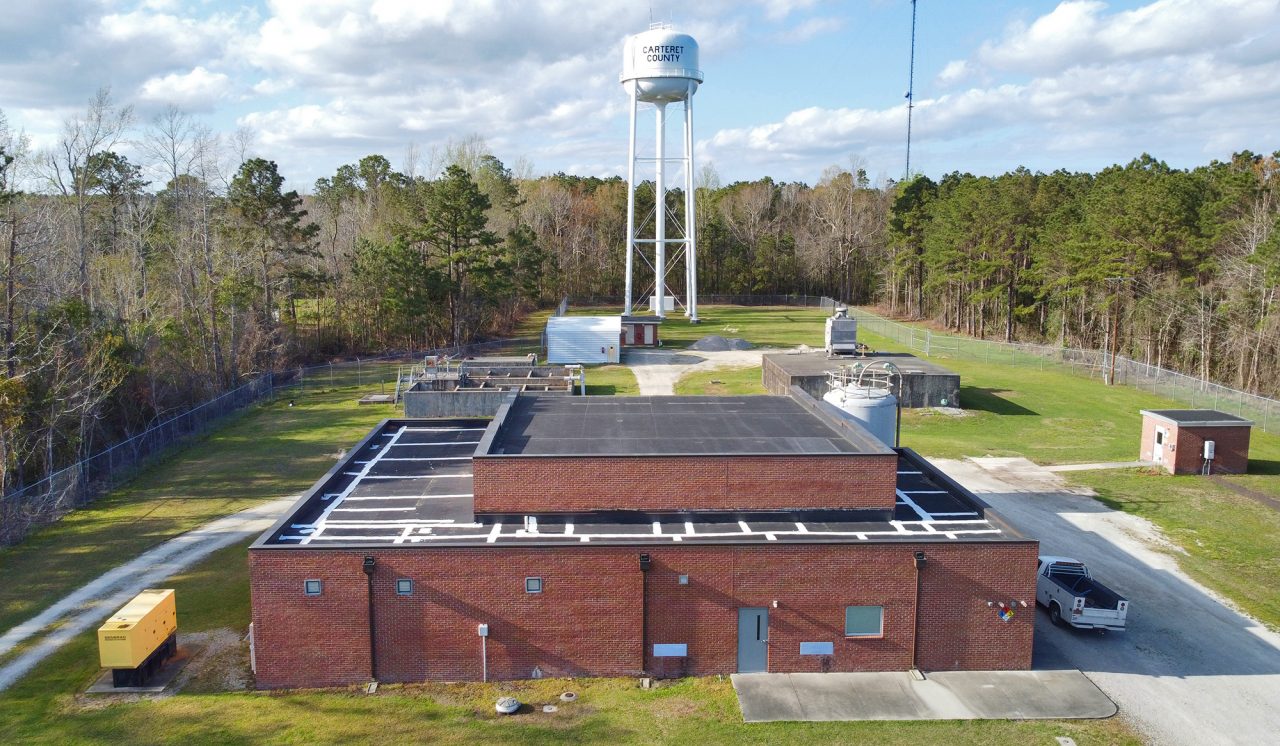
The roughly 1,200 customers served by Carteret County’s public water system will have to wait until next month to find out if commissioners will decide to sell the system.
In a unanimous vote during its regular meeting June 21, the board decided to table until its July 19 meeting a decision on whether to sell the system that has been the object of a bidding war between two companies since February. That’s when the possibility of a sale was first announced publicly.
Supporter Spotlight
The system, if not sold, will most likely be classified as a distressed system, or a system operated by a local government that is showing signs of failure to address financial or operating needs that will ensure the system is self-supporting.
Cary-based Aqua North Carolina and Charlotte-based Carolina Water Service each submitted unsolicited bids earlier this year after a study was performed on merging Beaufort and the county water systems. Beaufort declined the offer. Aqua’s $7 million bid was accepted as the high bid during the Feb. 15 meeting.
By the next meeting on March 15, a group of citizens — many of whom are water system customers– banded together to speak out against the sale to a private company. The group, Carteret County for Public Water, cited concerns with rate increases and water quality.
Contributing to the decision to wait is a new offer from one of the bidders that came in Thursday.
Chairman Ed Wheatly said during the meeting that the county received an offer from Carolina Water Service that guarantees a moratorium on rate hikes for five years and would do away with the existing special water district tax assessed by the county.
Supporter Spotlight
In June 2010, the county established a special tax district, the rate for which has been 5.5 cents per $100 of assessed property value since 2012. About 3,700 parcels, or taxpayers, are in the district but only about 1,200 are water system customers. The remaining 2,600 paying the tax are not served by the water system.
About $330,000 is generated annually from the water district tax and there’s an additional $90,000 in sales taxes generated annually.
Wheatly also noted that there has been a $5.5 million loss over the life of the system, which he called a liability, not an asset.
Commissioner Mark Mansfield’s motion to eliminate the 5.5 cent special tax and special tax district was approved. Keeping the tax in place would essentially guarantee distressed status.
“I’m not sure what will happen with the water system, but in order to not be a distressed for system, I think we need to do away with a special taxing district and do away with the 5.5 cent tax rate,” he said.
The county system checks most of the several boxes that determine if a unit is distressed, such as serving fewer than 10,000 customers, not generating enough revenue to cover expenses, asset depreciation and debt payments, and has appropriated funds to supplement the system’s operation.
County Manager Tommy Burns reminded the board that now that the water tax has been eliminated, if the county sells or keeps the systems, there’s a year of due diligence during which time a rate is needed.
Commissioner Robin Comer made a motion to increase the rate by 95% for each meter size: ¾ inch, 1-inch, 2-inch and 4-inch, which was unanimously approved.
The fee schedule for fiscal 2021 water service states that the base charge for a 3/4-inch meter flat fee, which covers the first 1,000 gallons of usage, is $27.50 a month with each additional 1,000 gallons costing $6.90. For fiscal 2022, a 3/4-inch meter basic charge flat fee is $53.65 a month for the first 1,000 gallons and $13.45 each 1,000 gallons.
The State Water Infrastructure Authority and the Local Government Commission developed in November 2020 the criteria to identify a distressed unit.
If determined distressed, the local government must conduct an asset assessment and rate study, participate in a training and educational program and develop an action plan.







